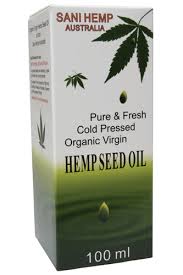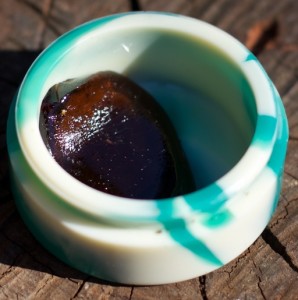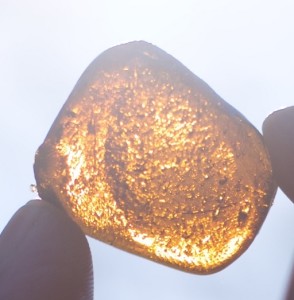Cannabis is a Herb
Cannabis contains hundreds of pharmaceutical compounds (Turner et al. 1980).
Herbalists contend that poly-pharmaceutical herbs provide two advantages over single-ingredient synthetic drugs:
1. therapeutic effects of the primary active ingredients in herbs may be synergized by other compounds.
2. side effects of the primary active ingredients maybe mitigated by other compounds.
Thus, cannabis has been characterized as a “synergistic shotgun,” in contrast to Marinol (∆9-tetrahydrocannabinol, THC), a synthetic, single-ingredient “silver bullet” (McPartland and Pruitt 1999).
Mechoulam et al. (1972) suggested that other compounds present in herbal cannabis might influence THC activity. Carlini et al. (1974) determined that cannabis extracts produced effects “two or four times greater than that expected from their THC content.” Similarly, Fairbairn and Pickens (1981) detected the presence of unidentified “powerful synergists” in cannabis extracts causing 330% greater activity in mice than THC alone.
Hash Oil, a Natural Botanical Extract of Cannabis.
Hash Oil is the active ingredient in all cannabis medicines, except root extracts. Hash oil is plant resin, produced on the surface of the plant leaves and flowers. It is a poly-pharmaceutical, composed of mostly cannabinoids, terpenes and flavinoids.
What is the difference between Hemp Seed Oil and Hash Oil?
Hemp seed oil is produced inside the hemp seed. Simply cold press the seeds and squeeze the oil out, is the easiest way to make it.

Hemp Seed Oil is 80% essential fatty acids, mostly omegas 6 and 3, which make it the optimal nutrition and moisture protection for the layers of the skin, our largest organ. It is a poly unsaturated fat, with long molecule chains that enable it to penetrate the epidermis, dermis, and subcutaneous layers of the skin and deliver medicine locally. It is considered to be hemp oil when there is less than .03% THC the psycho-tropic element in cannabis.
Hemp Seed Oil is fragile, susceptible to heat, light and oxidation. It should not be heated at high temps and always stored properly for freshness.
Hash Oil,
Hash oil is produces on the surface of the flowers, leaf and stems of the cannabis plant.
Hash Oil is rich in THC, CBD and other cannabinoids.
The levels of these compounds depend on the strain, climate and processing.
For Topical Medicine we have found that Cannabidiol is truly the jack of all trades as it has been shown to help a much larger group of medical concerns. We now know that CBD and THC partner as antagonists and allies in the human body.
Terpenes are also extremely important to effective medicine, they are the building blocks for certain vitamins, pigments, resins, essential oils and cannabinoids. They also interact creating a range of different smells, qualities and effects. There are over 120 terpenes produced by cannabis, some alter permeability of cell membranes allowing in more or less THC, others affect serotonin levels and dopamine chemistry.
Combined, cannabinoids and terpenes in cannabis have natural anti-bacterial and anti-fungal properties designed to fight infection.
Cannabis has regenerative effects on body tissue stopping the progression of skin sores while repairing skin from herpes simplex, fever blisters, eczema, psoriasis, acne, hemorrhoids, dandruff, dry chapped skin and up to second degree burns.
The anti-inflammatory and anti-spasmotic properties of Cannabis help with swelling, bruising, muscle and joint pain, cramps, strains, contusions, headaches, and migrains.
Analgesic qualities help patients deal with the pain associated Arthritis, Tendonitis, Carpal Tunnel, Neuropathy, PMS, Fibromyalgia, Diabetes, Multiple Sclerosis, Rheumatism, and many movement disorders.


